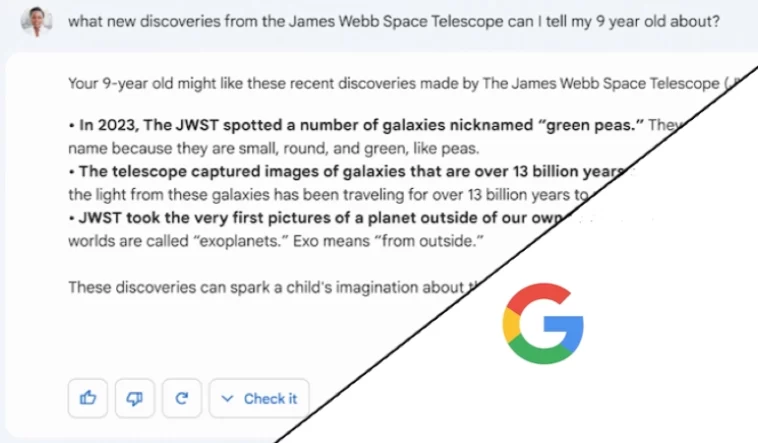Known as Bard, Google’s AI-powered chatbot will compete with Microsoft’s ChatGPT. OpenAI’s ChatGPT has gained popularity for its ability to write essays, poems, or code within seconds, sparking fears of job obsolescence or cheating. Earlier this week, Microsoft announced its investment in OpenAI and began integrating ChatGPT into its Teams platform, with plans to integrate it with Office and Bing in the near future. This news put pressure on Google, as the potential inclusion of ChatGPT into Bing’s search engine raises fears of competition for Google’s dominant search engine.
After ChatGPT posed a threat to Google, the company’s founders Sergey Brin and Larry Page were called back to brainstorm ideas. Additionally, the move was prompted by Alphabet’s poor earnings last week and its recent decision to lay off 12,000 employees to focus on artificial intelligence projects. Google’s announcement of Bard came on the eve of an AI launch event by Microsoft, indicating the two tech giants’ upcoming battle over generative AI.
According to Sundar Pichai’s blog post, Bard will be released for testing in the coming weeks and made widely available thereafter. Bard is based on LaMDA, the company’s Language Model for Dialogue Applications, and has been in development for several years. According to Pichai, Bard will combine knowledge with the intelligence and creativity of language models to provide high-quality responses derived from the web. Unlike ChatGPT, Bard will provide up-to-date responses, and Pichai ensures that Bard’s responses are accurate, safe, and of high quality.
Furthermore, Google confirmed that its search engine would soon feature AI-powered features, with AI-generated responses simplifying complex data into easy-to-understand formats. According to independent tech analyst Rob Enderle, the move into generative AI will alter the competitive dynamics for search and information. However, Thierry Poibeau of the CNRS research center in Paris warns that while these search engines may give structured answers, they may also give wrong answers.
Bard was announced by Google after a series of controversies surrounding AI-generated language models. In November, Facebook’s release of Galactica, its own large language model, was taken down after three days due to its biased and incorrect results. However, Pichai stated that Bard will source its responses from a limited version of its base language model, reducing computing power and making it accessible to a wider audience.
As a result of Google’s announcement of Bard, a new AI battle between the tech giant and Microsoft is likely to take place, with both companies intent on revolutionizing search and information. It is still too early to determine the outcome of the battle for dominance in the field of generative artificial intelligence, as it has only just begun.


